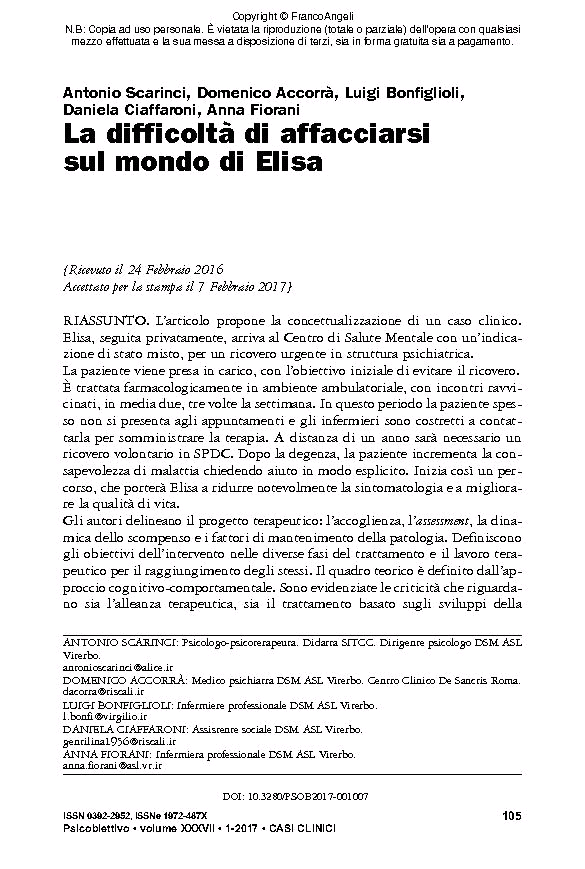La difficoltà di affacciarsi sul mondo di Elisa
105-119 p.
The article proposes the conceptualization of a clinical case. Elisa, who is followed privately, arrives at the Mental Health Center with an indication of mixed state requiring an urgent hospitalization in psychiatric structure. The patient is taken in charge with the initial objective of avoiding hospitalization. She is pharmacologically treated in an ambulatory with close encounters, on average two, three times a week. In this period, the patient often does not show up for appointments and nurses are forced to contact her to deliver therapy. After one year an admission to SPDC will be necessary. After the hospitalization she increases her awareness of illness asking explicitly for help. Thus began a path that will bring Elisa to greatly reduce the symptoms and to improve the quality of life.
The authors outline the therapeutic project: the acceptance, the assessment, and the dynamics of the decompensation and the maintenance of the disease factors. They define the objectives of the intervention in the different stages of treatment and the therapeutic work to attain them. The theoretical framework is defined by the cognitive-behavioral appro-ach. The critical issues that concern both the therapeutic alliance, the treatment based on the developments of LIBET (Life themes and plans Implications of biased Beliefs: Elicitation and Treatment) and Metacognition Therapy are highlighted. [Publisher's Text].
-
Artículos del mismo número (disponibles individualmente)
-
Información
Código DOI: 10.3280/PSOB2017-001007
ISSN: 1972-487X
KEYWORDS
- Terapia cognitivo-comportamentale, terapia metacognitiva, disturbo dell'umore, Cognition Attentional System, Life Themes and Plans Implications of Biased Beliefs: Elicitation and Treatment
- Cognitive-Behavioral Therapy, Metacognitive Therapy, Mood Disorder, Cognition Attentional System, Life Themes and Plans Implications of Biased Beliefs: Elicitation and Treatment



